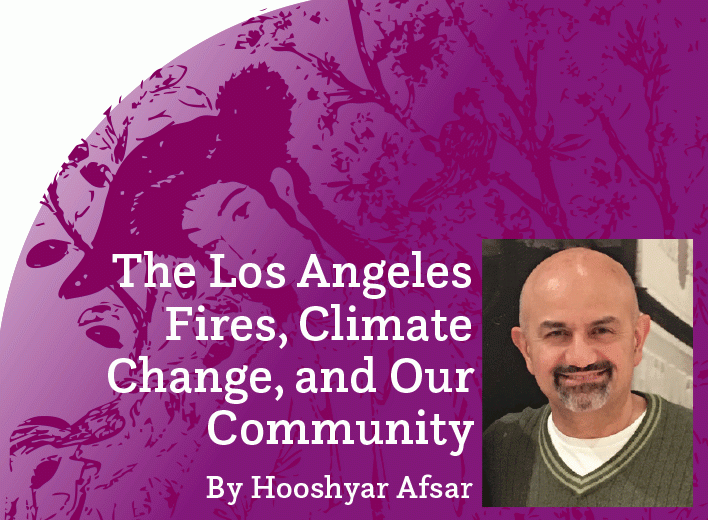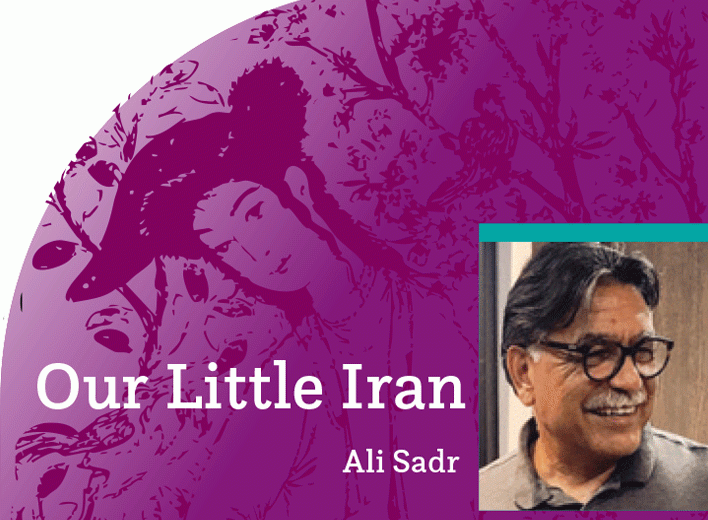An Immigration Story:
Esteeve, A Turkish Man
By Reza Khabazian
Leaving your homeland and residing in another – with a totally new culture, language and set of laws and regulations – is very challenging and requires a lot of adaptation that, in most cases, is also very frustrating.
But, looking back at those challenges many years later makes some of them look funny, some amazing, and some, of course, sad.
The truth is, no matter how we feel about them, the challenges are, for sure, part of the history of immigration that needs to be documented for use by our grandchildren or simply by historians to picture the hardship that first generation Iranians had to go through to meet those challenges.
The main purpose of this column is to encourage our readers to start telling their stories so we can present a diverse documentary. The first of this series–“How I Met A Dime”–was published in the May-June 2021 issue of Peyk. This is the fifth part of Mr. Khabazian’s story.

As a means to retaliate against hostage taking, President Jimmy Carter came up with some executive orders that made the life of all Iranian students more problematic than before. One executive order authorized immigration officers to come to all colleges and universities to check the visa status of all Iranians. Another executive order made it almost impossible for any financial transaction with Iran, affecting the financial situation of all Iranian students. As a side effect of these orders, the American public—which had previously been on the sidelines—suddenly became vigilant about visa requirements, such as prohibiting work for students and so on.
In general terms, it was not easy anymore to express your identity, such as your name or your real national origin. Ali became Al, Reza became Ray, Iran became Persia, and—more painful than all—speaking Farsi in public became a big No No.
It is always amazing to witness that, in the world of politics, the same people who are liked and respected all of a sudden become unwanted and disrespected. The hostage crisis era was not pleasant to be in or even, now, to remember it. But the new generation of Iranians ought to know how the first generation lived under heavy stress so subsequent generations can flourish and enjoy living in America.
***
The hostage crisis was ongoing but my schoolwork, good or bad, ended in May 1980 and I received my master’s degree in plant science. The time arrived to either apply for my PhD degree or look for a job related to my expertise. But then I received a letter from Texas A&M University that read:
“We are not accepting applications from Iranian students at this time.”
Looking for work seemed to be the only remaining option. Honestly, I did not have any confidence to apply to major companies in Corpus Christi, mainly due to the general attitude against Iranian nationals. Therefore, finding a job in a small nursery operation came as welcome news.
It was in this firm that—luckily—I met “Chris,” a salesperson working with the largest nursery in town. When she learned about my degree and plant knowledge, she encouraged me to see her on my day off so she could introduce me to the owners of this family-operated business, and I did.
“Mrs. T” was a very well-groomed lady in her late fifties who, without a doubt, knew very well how to dress with the utmost art of color coordination. Chris introduced me and left the room. Mrs T looked at me with curiosity and said:
“Chris spoke very highly about you,” while looking at me with obvious curiosity, and then she continued: “We always have room for highly educated people to be part of our team. She said that you received your master’s degree. Is that right?”
“Yes, Ma’am. It is.”
“Excellent, when do you want to start?” she asked.
“From the beginning of the month so I can have enough time to give my notice to my current employer.”
“Of course! So, I will see you at 8 a.m. on the first of the month here in my office.”
That was it? I thought with utmost happy feelings. Then why I was so afraid of applying for major companies? Maybe I had assumed what Iran would have done if the tables were turned and America had taken Iranian hostages—I couldn’t imagine that Iranian companies would have willingly employed Americans.
As I was leaving her office, Mrs T paused me for a second:
“Could you please bring your degree or transcript when we meet.”
“Sure,” I said, as I was exiting her office.
And then, on the first day of the next month, I was standing in front of her office, ready to start my real job.
When Mrs. T saw me, she left her desk and asked me to follow her to the main nursery so she could introduce me to her son, “T Junior.” As I was following her, she stopped, looked at me directly, and asked the question that I was always afraid of:
“Where are you from, can I ask?”
“From Iran,” I answered hesitantly.
“Humm mm, I suspected that,” she sighed, “why don’t you stay here and let me talk to my son.”
The entire world was crumbling over my head. This is the end of it, I thought, I can not get a decent job as long as this crisis is ongoing.
Not long later Mrs. T came back with her son, Mr. T Junior, a tall, well-built, handsome Texas Man wearing boots and a cowboy hat. He offered me a handshake and did not waste a moment to express his feelings:
“Look, Mr. Khabazian, I am 35 years old, married, and have two little dolls as my daughters that I love dearly. I never ever imagined that one day an Iranian national would be my employee. If our government needs me and orders me, I wouldn’t hesitate to join the army, grab a rifle, and help to free our people. My mom has told me about your expertise and believe me, we always welcome people who are knowledgeable but TODAY, you have put me in an awkward position and I don’t know what to tell you.”
As he finished his statement, he crossed his arms over his chest and kept looking between me and his mom.
I felt awful and was ready to leave when I thought to myself: I can easily leave and look for a less desirable job, but I would blame myself if I don’t express my true feelings. They won’t hire me. What do I have to lose?
I looked at them directly and said:
“Mr. T, Mrs. T! I really appreciate your honesty and very clear message. I am very sorry that I did not come to America in a better time, and I am also sorry to put you in this awkward situation. I understand you and sympathize with you perfectly. Believe it or not, I also care for the safe release of hostages, too. Before I go, I would like to take a couple of minutes of your time and say something before my departure. I, like you, are married and have a little son that I love dearly and want the best for him. If the situation of my homeland was normal like a couple of years ago, I could go back and the least position I could have was being a teacher in the school of Agriculture that pays a high salary. The reason I refrain from returning is my lack of support and any relationship with the current regime. I am certain that all the hostages will be released sooner or later, but what about the future of my only child or the release of 36 million other people?”
As I was ready to pause and say goodbye, I noticed that Mr. T’s arms were no longer on his chest, but were now hanging at his sides. He looked at his mom, turned to me, and—without hesitation—brought his hand forward, shook my hand, and said:
“Welcome to our company.”
I saw a smooth feeling of relief on Mrs. T’s face while I was forcing myself not to cry. A cry of joy or a cry of sorrow or both!
“Now, that you are on our team, we should talk about two other obstacles. First, we have to give you an American name. What do you like to be called?”
“Ray,” I said.
“No… please… we have three Rays here and we are already confused. Pick another name.”
I have no idea where my mind was and what I was thinking when I came up with this funny name that even I had a hard time pronouncing!!
“Esteeve.”
“That’s fine,” said Mr. T Junior. “What about your nationality?? We can’t have that around here. Not with our customers, not with our other employees, and especially not with my dad, T Senior.”
“How about Turkey!?” I cried.
And that is how, in a short few minutes, I lost my identity and a new man was born.
Esteeve, a Turkish Immigrant.


















